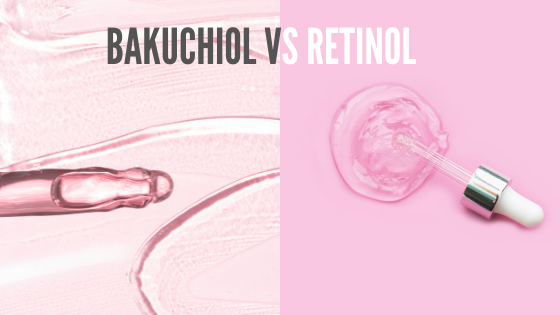Is Bakuchiol Better for Your Skin Than Retinol?
There is a lot of buzz about a relatively new, plant-based ingredient with an unusual name that has been showing up in clean beauty products. Bakuchiol (pronounced Bah-koo-chee-ol) is becoming a popular alternative to the much-loved ingredient Retinol, prompting beauty lovers everywhere to weigh in on the Bakuchiol VS. Retinol discussion. In truth, these two ingredients are more like cousins instead of twins. While these two heavyweights produce similar benefits, Bakuchiol is becoming even more popular because it does not have the sensitizing effects some people experience from Retinol.
What is Bakuchiol?
This natural antioxidant and anti-aging ingredient is found in the seeds and leaves of a plant. Native to India, China, and part of Africa, it is often used in Ayurvedic and Chinese natural medicine. Research has shown that Bakuchiol provides skin-restoring ability and has a brightening effect on skin. Science has revealed that Bakuchiol interacts with many of the same areas in skin as Retinol, sometimes by taking the same pathway, other times by going a different route but still leading to the same results, such as diminished wrinkles, improved elasticity, and smoother skin.
What is the Biggest Difference?
It isn’t simply a matter of which is better. This battle ultimately comes down to the potential side effects experienced by users of Retinol. Obtaining clear and radiant skin is always the goal, but with Retinol we spend time with dry peeling skin. It’s impossible to feel cute when our face is peeling and shedding like a snake. So here to save the day is the mighty, natural Bakuchiol. While it has many benefits, it’s greatest achievement is that it has minimal sensitizing effects on the skin. Yay, no shedding!
Retinol is certainly royalty in skincare, but it doesn’t always play nice with others. Mixing it with other products containing Vitamin C and Alpha-hydroxy acids can increase skin sensitivity and cause irritation. However, studies have shown that Bakuchiol is safe to pair with other skincare ingredients. As always, speak with a dermatologist or do a small patch test when combining two skincare actives for the first time.
What are the Benefits of Bakuchiol?
Besides the lack of sensitizing effects, Bakuchiol carries with it several noteworthy benefits. Like its counterpart, it boosts the production of collagen types I, III, and IV in skin cells. Collagen is vital, especially for anti-aging because it is responsible for skin firmness and elasticity thus diminishing the appearance of fine lines and wrinkles. Bakuchiol also has been proven to reduce hyperpigmentation, or dark spots. A recent clinical study found that Bakuchiol and Retinol both significantly decreased wrinkle surface area and hyperpigmentation, with no statistical difference between the compounds.
How to add Bakuchiol to your Skin Care Routine
Bakuchiol will quickly become the superhero of your skincare routine. Like any new product, implementing it into your everyday routine should start with a patch test to determine your skin’s reaction. Typically, Bakuchiol is safe to use both day and night. While products like 3 Graces Facial Balm that contain Bakuchiol can be used before a serum, Bakuchiol is found in many different types of products (eye creams, moisturizers) and is safe to layer. You will notice an instant difference in the tone and look of your skin, but these benefits will improve and sustain over time and in 4 weeks, 8 weeks, and more you will see your skin respond like a champ.








